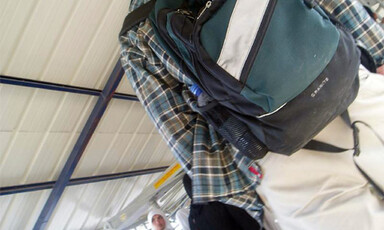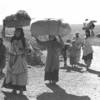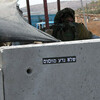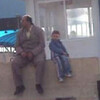
Checkpoint of No Return
Hebron, Palestine 11 May 2005
In a time of empty talk of peace and celebrating Ariel Sharon as a man of moderate politics, because of extremists’ protest against evacuation from Gaza, the situation on the ground in Palestine sees remarkably little change. Everyday life in the occupied territories is as always a continuous chaos of military interference. One of the most obvious and constantly present exponents is the Israeli grip on Palestinian freedom of movement, suffocating the fragile infrastructure. “I’m here to protect my country against terrorists,” the young man tells me shrugging as if he is not completely confident with his answer. Read more about Checkpoint of No Return








